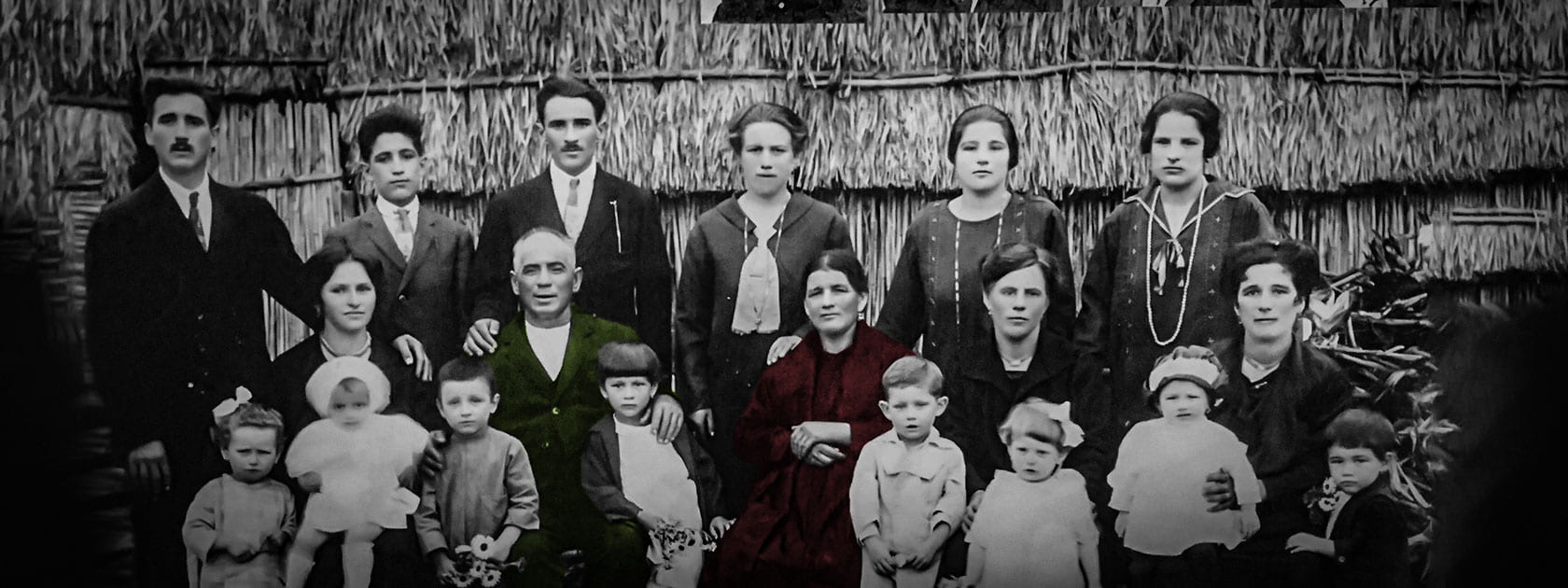By Alyssa Kwiatkowski

Table of Contents
Introduction
The purpose of my assignment was to create an oral history and collection of artifacts related to Italian immigration to Canada, in order to contribute to the Italian Canadian Narratives Showcase. I had the honour of interviewing Domenic Pasqualino who graciously invited me to his restaurant. He is the owner of Pasqualino’s and the uncle of one of my longtime friends. While I myself am not Italian, I am studying the Italian language and hoped to gain a better understanding of Italian history from the unique perspective of a business owner well versed in the culinary arts.
The interview took place on Oct. 10 2024, in the restaurant Pasqualino’s. My methods involved conducting a semi-structural interview, which had a predetermined set of 9 questions. Further spontaneous questions were used to follow up on certain answers. The interview was recorded such that it could be accessed at a later date. The information contained was then summarized and used to create an analysis and reflection of the experience. I was kindly given permission by Domenic to photograph the restaurant; in addition to being provided with personal artifacts related to his story to share with the public, I was able to document the restaurant so that its appearance at this moment in time can be preserved.
Interview
Summary of Interview
Analysis
In many cases, the driving factor for Italian immigration, to Canada and otherwise, was the search for opportunity; that holds true whether discussing the first immigrants on the frontiers of Western civilization working as missionaries in the 16th-17th centuries, or those who made the journey to Canada later on in search of work as labourers in the 1900s (Harney, 6, 1998). Domenic shared a similar sentiment in his oral history. His grandfather, who moved to Canada for a period of time in the 1920s to work as a foreman in Fort William did so in order to make money and provide for his family. His parents, as well as some of his uncles and aunts, made a similar journey; while they did not all move to the same cities, they did tend to move to places where friends and family had been to previously. Domenic himself did not chose to make the move from Italy to Canada, as he was too young at the time when his parents made the decision, however he did choose to relocate from Thunder Bay to Milton later on. He and his wife, like Domenic’s parents and grandfather, chose to make this move in order to provide better opportunities for their family. Therefore, the desire for opportunity is a strong motivating factor for change. That desire to better your life, whether for yourself or your loved ones, can push you to take a risk; moving from one city to another, or to a different country entirely are only some examples.
Transnationalism as described by Aguiar refers to how immigrants will settle and assimilate, but still maintain ties to their home country; he argues that while this has been most observed in first generation immigrants, as the subsequent generations often experience what he refers to as “ancestral amnesia,” transnationalism can and does extend past the first generation (Aguiar, 202-204, 2006). Domenic’s account supports this view. Through continued use of the traditional recipes of his mother and mother in-law, and teaching these recipes to the next generation, the legacy of the restaurant and its culinary tradition will live on. His son, someone of the next generation, will be able to continue running the restaurant and ensure it remains open and running as it has been for years to come. Of course, there is still opportunity to modify certain menu items to keep it enticing for clientele, but the ties to Italy and the origin of the dishes remain.
Gallery
































Bibliography
Harney, Robert F. “Italian Immigration and the Frontiers of Western Civilization.” The Italian Immigrant Experience, Canadian Italian Historical Association, 1988, pp. 1–28.
Aguiar, Luis L. M. “The New ‘In-Between’ People’s: Southern European Transnationalism.” Transnational Identities and Practices in Canada, edited by Vic Satzewich and Lloyd Wong, UBC Press, 2006, pp. 202-215.
Kwiatkowski, Alyssa. “L’ospitalità: The Story of Domenic Pasqualino and the Preservation of Italian Culinary Traditions in Milton” YouTube. November 6, 2024. https://youtu.be/ZpISH5Wxb3E ; access at Italian
Communities in Canada: Heritage, Cultural and Ethnographic Studies as of November
2024, www.italianheritage.ca.
How to Cite
Kwiatkowski, Alyssa. “L’ospitalità: The Story of Domenic Pasqualino and the Preservation of Italian Culinary Traditions in Milton.” In Italian Communities in Canada: Heritage, Cultural and Ethnographic Studies, suprv. Teresa Russo. University of Guelph, 6 November 2024, Guelph (https://www.italianheritage.ca). Italian-Canadian Narratives Showcase (ICNS), Sandra Parmegiani.


